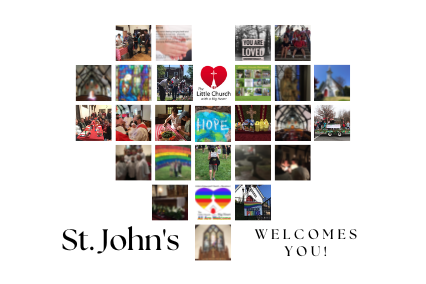|
A message from Rev. Sharon Last fall, members of our congregation and the Boonton community recorded our hopes and dreams on a banner that now hangs in our parish hall. In November, we met with a member of the diocesan Visioning Team to delve a little deeper into our dreams for St. John’s. We discussed the strengths of our parish as well as our challenges and concerns; the ways we interact with the diocese; how we wish the diocese could support us; and our dreams for future ministry. This weekend, the St. John’s clergy and deputies will hear more about the diocesan visioning process and how that connects with our own ministries. The process of discerning a vision for the future is an important and ongoing part of the Christian journey in our own lives, in the life of our parish, and in the life of our diocesan and the wider church. This is how we discover what God is calling us to do and how we plan to answer that call. You can hear what our bishop says about the process now underway in our diocese here: https://youtu.be/wUVoEve9nMg I’ve also attached the report from our listening session in November. I encourage everyone to read it. What do you agree with or disagree with? What would you add? These insights will help us as we plan for our future at St. John’s and how we will share God’s love with our community.
0 Comments
|
AuthorSArticles are posted by the Communication team, Rev. Sharon and others. Archives
June 2024
Categories
All
|
|
St. John's Church
226 Cornelia Street Boonton, NJ 07005 |

 RSS Feed
RSS Feed


